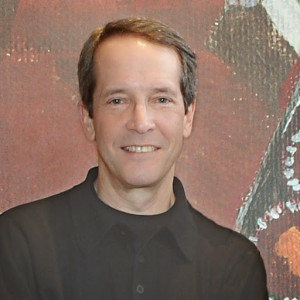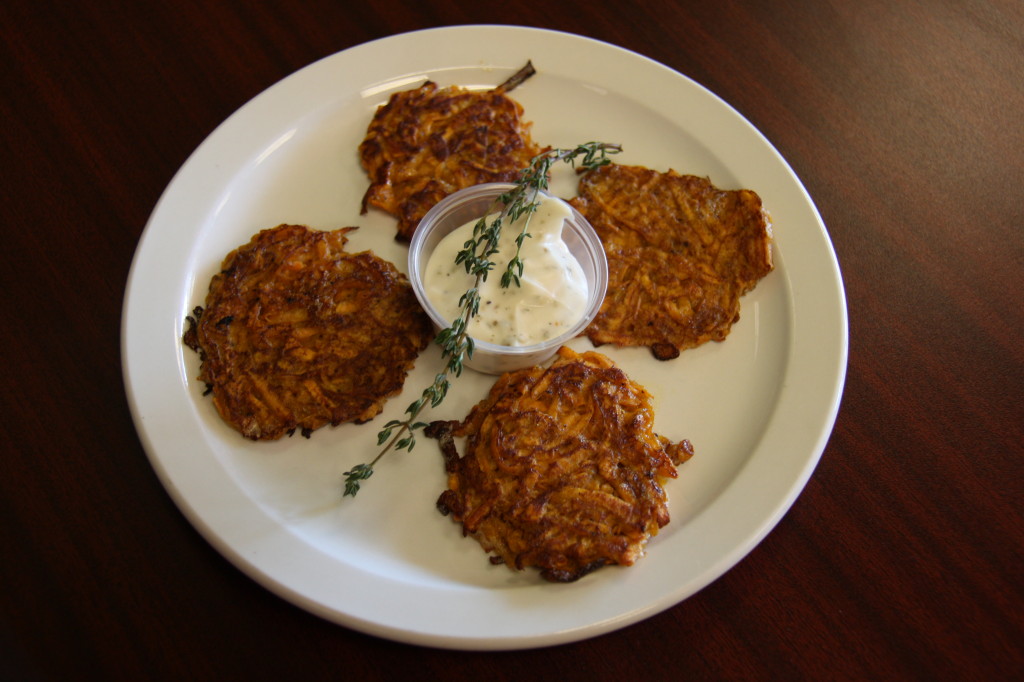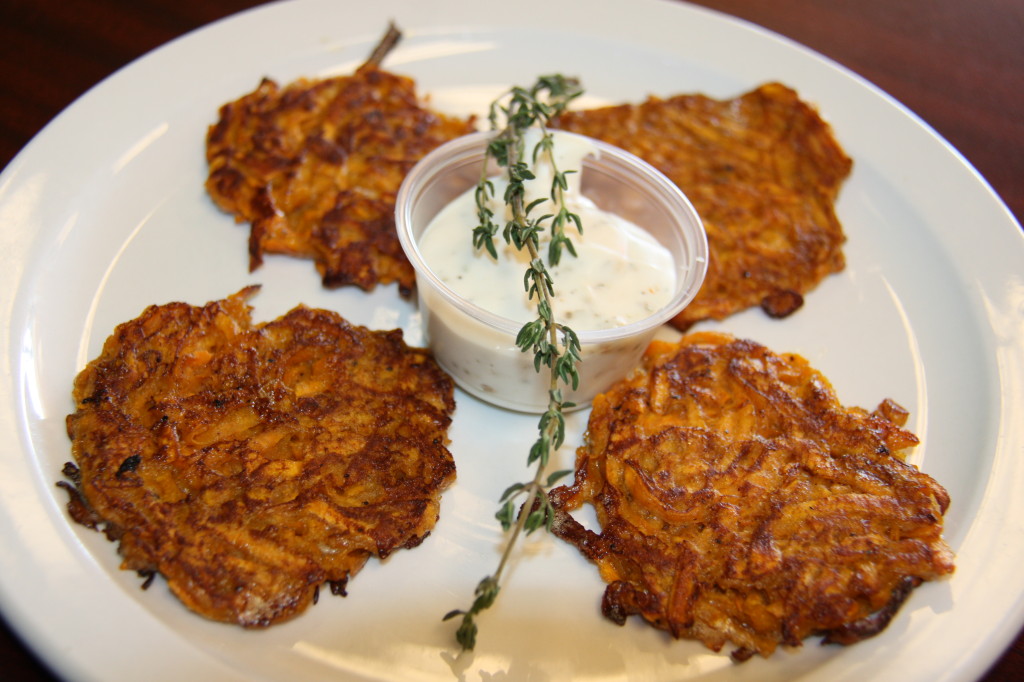Keeping kosher in Metro Detroit
By Zlati Meyer, Detroit Free Press Staff Writer
The theme of 28-year-old Daniel Kohn’s newly opened Oak Park restaurant can be summed up with one menu item that blends contemporary Americana with Old World traditions — the brisket burger.
Kravings, the brainchild of the Ritz-Carlton alumnus and third-generation caterer, is certified kosher, but it focuses instead on its healthy, quality ingredients and dishes made from scratch. The menu is chock-full of items that would surprise his late grandmother, who founded Quality Kosher Catering in 1968, such as portobello mushrooms, “bacon” made from cow rather than pig and sushi that’s shtetl meets Shogun.
Metro Detroit is in the middle of a kosher boomlet. In addition to Kravings, a kosher steakhouse, Prime 10, opened about a block away and downtown Detroit saw the return of Chef Cari’s the Spot in the revolving lineup of pop-ups at Campus Martius this summer. Proprietor Cari Rosenbloom is planning a kosher vegetarian restaurant downtown by the end of the year.
“Kosher has so many strict rules that people know when they buy a product that it’ll be a good and safe product,” Kohn said, crediting the “evolution” of the community over the last two years for the increased interest in kosher food. “The community is so flooded with people, like myself, who come back from New York or someplace else. All these people are used to kosher dining options that are not selling old-school items, like chicken soup.”
The laws of kosher, based on the Hebrew Bible and further elucidated by the Talmud, are extensive; Jews, many of them Orthodox, adhere to these rules, such as not eating meat products and milk products together; shellfish and other fish without fins and scales; the meat of animals that don’t chew their cud and have split hooves, such as pigs and horses; bugs in produce, and eggs with blood spots in them. Meat and fowl must be slaughtered with a special ancient ritual.
Specially trained kosher experts, called mashgichim (mahsh-GEE-chim), supervise slaughterhouses, dairy farms, restaurants, industrial food companies, bakeries and other commercial and retail sites to make sure all processes and ingredients are OK. Certifying agencies are both national, like the Orthodox Union, which puts the OU on Coca-Cola, and local,like the Council of Orthodox Rabbis of Greater Detroit.
“Many people consider kosher is cleaner and with an extra level of supervision. Things don’t get in,” said COR chairman Rabbi Doniel Neustadt.
Kosher is a $12.5-billion industry in the U.S., according to the most recent data by Mintel, a market research firm that tracks the field. The report says that the major reasons for purchasing kosher food is food quality (62%) or general healthfulness (51%). Thirty percent cited religious observance; 14% follow kosher rules; 10% follow some other religious rules with eating restrictions similar to kosher, and 6% follow halal rules. Others cited ethical reasons and allergies.
“It’s a segment of the food industry that continues to grow. It’s another niche part for the food industry that has cache, like organic, local,” said Sue Fishkoff, author of the book “Kosher Nation: Why More and More of America’s Food Answers to a Higher Authority.” “The growth of the particular interest in kosher food, primarily kosher meats and poultry, came in the late 1960s, early 1970s with pesticide scares and food safety scares and Americans become more aware of the prevalence of food-borne (illnesses). The idea that another pair of eyes, religious eyes, is overseeing the manufacturing process makes them feel comfort and it’s only perception, but it’s a very strong one.”
Rabbi Jason Miller, who founded the certification agency Kosher Michigan in 2008, agreed that kosher makes good business sense.
“More people are taking on a kosher diet, both Jews and non-Jews and business owners have also found that kosher certifications have increased their sales,” he said.
Fishkoff credits the growing number of Jews embracing the kosher lifestyle after spending the first part of their lives developing sophisticated non-kosher palates for the boom, plus many of today’s kosher restaurateurs come from the wider culinary world, too.
Rosenbloom, who trained in New York City in what is today called the Natural Gourmet Institute, pointed to her abridged Campus Martius menu, including falafel, chicken shawarma and Belgian-style fries — and her mostly non-kosher-observant customers.
“Tabouleh, fresh, delicious, gluten-free salad. Who cares if it’s kosher or not? It’s absolutely delicious,” said the Ferndale resident. “People aren’t lined up because it’s under the supervision of the Council of Orthodox Rabbis of Greater Detroit. They’re lined up because it’s delicious.”
And in metro Detroit, which is home to a huge Muslim population, kosher can pinch-hit for halal, when the latter isn’t available, according to Dawud Walid, executive director of the Michigan chapter of the Council on American-Islamic Relations. The tenets of halal, which means permissible in Arabic, outline what practicing Muslims may eat; for example, no pork, carnivorous animals, bugs or alcohol.
One downside to kosher restaurants is their prices are higher; all that extra supervision, be it at the eatery or farther up the line at the commercial plant that makes the ingredients, gets passed along. Neither Neustadt nor Miller would discuss their organizations’ fees.
But Fishkoff predicts the kosher trend will continue: “It’s going to increase for the foreseeable future. It will particularly increase as part of the local, organic, high-quality foodie movement not as the heimish Old World borsht restaurant.”
Contact Zlati Meyer: 313-223-4439 or zmeyer@freepress.com. Follow her on Twitter @ZlatiMeyer.
Kosher Restaurants in Metro Detroit Under Kosher Michigan (Conservative Rabbi Jason Miller)
- Earthen Jar, Ann Arbor, www.earthenjar.com
- Inn Season Café, Royal Oak, www.theinnseasoncafe.com
- Liquid Lunch Café, Birmingham, www.bewelllifestylecenters.com/lifestyle-services/be-well-cafe
- Try It Raw, Birmingham
Kosher Michigan also certifies:
[connections template=names]
 “I work with Rabbi Jason Miller and Kosher Michigan because it is a collaboration, not the usual uni-directional service provider relationship.
“I work with Rabbi Jason Miller and Kosher Michigan because it is a collaboration, not the usual uni-directional service provider relationship.



